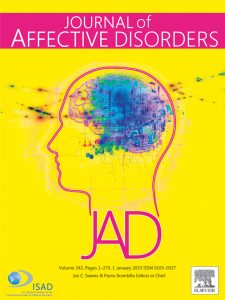 Here’s a head-scratcher from the Journal of Affective Disorders, which has retracted a 2017 article for, well, reasons we invite you to divine.
Here’s a head-scratcher from the Journal of Affective Disorders, which has retracted a 2017 article for, well, reasons we invite you to divine.
The article, “The effectiveness of group-based behavioral activation in the treatment of depression: An updated meta-analysis of randomized controlled trial,” was published by a group at the Jockey Club School of Public Health and Primary Care, part of the the Chinese University of Hong Kong.
According to the retraction notice:
This article has been retracted at the request of the Editors-in-Chief of the Journal of the Affective Disorders, as the choice of data analyzed was found to be inaccurate after updated data was provided by the authors, and this had a significant impact on the original article data and conclusions.
That would be confounding enough. But the study was a meta-analysis — which means that the authors weren’t using their own data. In other words, it seems that whatever fatal flaw afflicted the paper was missed during the peer review process.
Here’s the abstract for the article, which is available on PubMed:
Seven randomized control trials were identified from the United States, United Kingdom, Sweden and Iran from 2003 to 2013. A total of 240 subjects were randomly assigned to group-based BA [behavioral activation], and all participants included met the criteria for moderate to severe depression at baseline with the majority of participants being females. Participants who joined the group-based BA showed lower depressive symptoms (MD of BDI-II: -6.06 (95% CI: -8.28 to -3.85 and MD of HRSD: -2.82 (95% CI: -4.62 to -1.02)) than participants randomized to the control group with usual treatment. The group-based BA also showed significant reduction in anxiety level (MD of BAI: -3.66 (95% CI: -6.11 to -1.22)) but not quality of life according to two studies. Risk of bias was evident amongst the studies as blinding of health providers and patients were not feasible in psychological studies.
Neither the editor of the journal, nor the corresponding author of the paper, responded to requests for comment.
As we’ve written in the past (on more than one occasion), opacity does not a useful retraction notice make. However, the JAD isn’t usually an offender in this regard. Its multiple notices about the case of Mani Pavuluri, for example, were detailed, as was this 2016 retraction for plagiarism.
Like Retraction Watch? You can make a tax-deductible contribution to support our growth, follow us on Twitter, like us on Facebook, add us to your RSS reader, sign up for an email every time there’s a new post (look for the “follow” button at the lower right part of your screen), or subscribe to our daily digest. If you find a retraction that’s not in our database, you can let us know here. For comments or feedback, email us at [email protected].